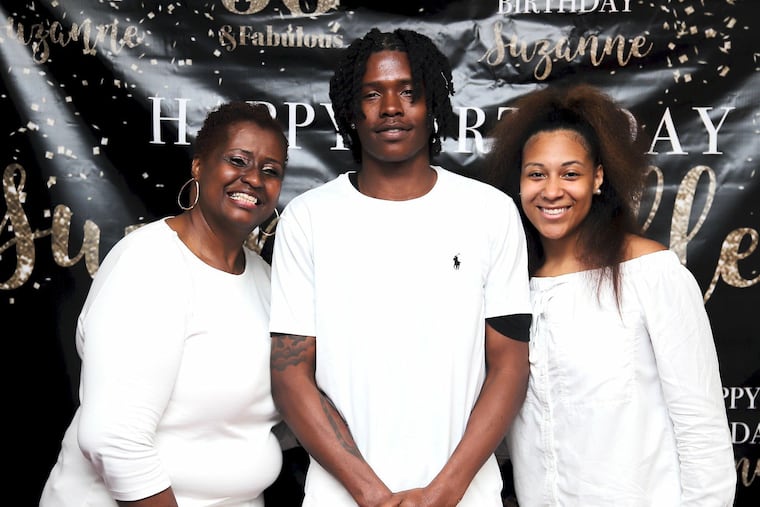Why is child welfare still ripping families, especially black ones, apart? | Opinion
The separation of black families in child welfare proceedings echoes the ways black families were ripped apart by slavery. The impact of both will have a profound effect on society for generations.

November 2019 will mark the 20-year anniversary of my parental rights being terminated. This month, as we celebrate black history, I reflect on the fact that some blacks either do not know their familial history or their familial history has been distorted because of wrongful family separation in the child-welfare system. My family is one example.
At the time that I became involved with the child-welfare system, I suffered from substance-use disorder. During addiction, I was homeless, unmarried, and living in poverty. These conditions can be a magnet for stigma and injustice. Yet it is my belief that the condition that had the most profound effect on my case is the racism that is inherently built into our society, and into the child-welfare system. These conditions became the foundation for the wrongful separation of my family.
I became involved with the Illinois Department of Children and Family Services (DCFS) when I lived in Chicago in 1994. At the time, I was addicted to drugs but still wanted to love and care for my toddler-aged daughter as best I could. When I was going to go on a drug binge, I would take my daughter to the home of family members and friends. This was my way of ensuring that my daughter would be taken care of properly.
Eventually, DCFS seized both my daughter and my newborn son. The child-welfare system, and the taxpayers who fund the system, say that persons should be able to take care of their children properly. But they did not provide me with adequate support to get clean.
That was a turning point for me: I resolved to get clean, with or without DCFS’s help. I applied for inpatient drug treatment, and after the waiting period had ended, I was called for a bed and entered the facility. I completed the 90-day inpatient drug treatment, and from there I entered a two-year residential recovery home program.
Despite making years of progress, my parental rights were terminated in 1999, years after my children had been seized. At the time, I had a full-time job. I went to college in the evenings, attended church services regularly, and had joined self-help groups. I went to court dates, asking to have my children returned to my custody because I had made such a remarkable turnaround in my life. Yet my children were not given back to me. In fact, it seemed that the more accomplishments I made, the more elusive custody became.
When each of my children turned 18, they sought out a relationship with me. But it’s possible that we will never again be a “legal” family, because of complicated laws.
It is my belief that racism contributed to numerous missteps and violations of my rights during my child-welfare case. Twenty years after the termination of my own parental rights, black children remain nearly twice as likely to be pulled into child-welfare investigations as white children.
Sadly, this is a problem nationally, and Philadelphia is a troubling leader.
In January, the National Coalition for Child Protection Reform reported that impoverished children in Philadelphia are more likely to be removed from their homes by child-welfare systems than in any other big city in the country. Past research suggests the city’s systems disproportionately affect black families.
The separation of black families in child-welfare proceedings echoes the ways black families were ripped apart by slavery. The impact of both will have a profound effect on society for generations.
Numerous studies show the negative impact on a child when the child is separated from a parent. Some separated children may suffer from fear of abandonment and other issues. Yet across the country, children are separated from parents every day. Sometimes without due process, sometimes without adequate legal representation, many times without the necessary access to adequate and appropriate services needed for reunification.
Some things can be done to reverse this troubling trend in Philadelphia and across the country.
One place to start is repealing the federal Adoption and Safe Families Act (ASFA) of 1997. This law has provisions that promote the swift termination of parental rights, also known as the “civil death penalty.” The language in ASFA and its focus on family separation and adoption helps to erase familial ties, and to erase familial histories.
It should be replaced with a new federal law that would revise the federal funding structure for child welfare, removing the focus from family separation to family reunification. It also should not impose the current 15-month time frame for preparing family reunification, which is often not enough time to complete the needed services.
ASFA also allows concurrent planning — when child-welfare agencies simultaneously work toward reunifying a child with his or her birth parent and work toward getting the child adopted by a different parent. The new law should not allow this planning. It should instead mandate that state child-welfare agencies provide concrete evidence that they have made reasonable efforts to keep children with their birth parents, and clearly define “reasonable efforts.” All families should have due process with adequate legal representation and have access to quality legal and social services before and during child-welfare cases.
We may not be able to legislate racism out of existence, but a better federal law can make a difference for families like mine.
Suzanne Sellers is the mother of two adult children and founder and executive director of a Chicago-based not-for-profit organization named Families Organizing for Child Welfare Justice (FOCWJ). She resides in a suburb of Chicago.